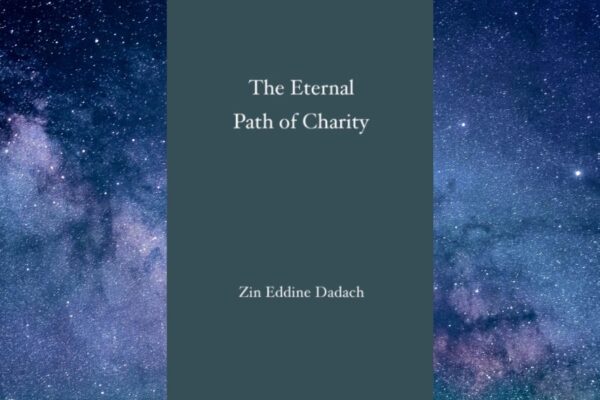What does Shahab al-Din Yahya Suhrawardi, the great 12th-century Persian philosopher and founder of oriental theosophy who was decapitated in Aleppo for heresy, have to do with Beethoven’s compass?
What does Shahab al-Din Yahya Suhrawardi, the great 12th-century Persian philosopher and founder of oriental theosophy who was decapitated in Aleppo for heresy, have to do with Beethoven’s compass?
What does Shahab al-Din Yahya Suhrawardi, the great 12th-century Persian philosopher and founder of oriental theosophy who was decapitated in Aleppo for heresy, have to do with Beethoven’s compass? One would wake up to this queer question while yawning one’s way through the ramblings and erudite monologues in Mathias Enrad’s novel ‘Compass’.
Sarah, a beautiful French scholar with whom the Austrian protagonist of the novel is obsessed, owns a replica of Beethoven’s compass which always points east instead of north. She describes it as “one of the rare compasses that point to the Orient, the compass of enlightenment, the Suhrawardian artifact.” Citing the reasons for the naming, she explains the role of Suhrawardi and his disciples in reviving the Islamic metaphysics after the death of Averroes. “The first Orientalist in the strict sense of the word was that decapitated man in Aleppo, Sheikh of Oriental illumination, of Ishraq, the Enlightenment of the East,” she avers.
A novel which owing to its relentlessly discursive style offers very rare doses of literary pleasure in the conventional vein, ‘Compass’ is a powerful narrative on the scholarly exploits of an Austrian musicologist, Franz Ritter, who spends a lifetime exploring the fusion of Middle Eastern and Western music traditions, or, to be exact, the appropriation of the former by canonical westerners. In his sickbed in a Vienna apartment, the insomniac protagonist, gifted with an encyclopedic knowledge of history and music, relates, in disordered, meandering flashback, to his experiences in the near east. The scheme of the novel, written in first-person narrative unfurling in the form of fitful, febrile at times, dreams, revolves around his lucubration with Sarah, who accompanies him in most of his peregrinations in Tehran, Aleppo, Palmyra, Istanbul etc. Much of the novel comprises their conversations interspersed with his own trains of thought about European and Middle Eastern artists, musicians, and cultural figures.
Intersections Between East and West
However, the critical argument of the novel pivots on the idea that the Orient is an imaginary construction for east and west. ‘Compass’ refutes all grand narratives about the west’s obsessions with the Orient and explores the intersections between east and west and looks at the dynamic combinations of cultures and traditions. Although the novel gives voice to the multiple opinions and contradictory views vis-à-vis the nature of the west’s obsession with the east, it does not take sides in the theoretical disputes on Orientalism. Instead of endorsing any particular theory, it weaves all arguments and counterarguments to the intricate tapestry of the narrative.
For instance, Edward Said’s critique of Orientalism is taken with a pinch of salt. There are no attempts to whitewash the nexus between scholars and colonisers, the involvement of archaeologists in espionage as well as the connivance of scientists in military expedition. Napolean Bonaparte is labelled as the inventor of Orientalism, ‘dragging science behind his army into Egypt’. Michael Bilger, a Prussian archaeologist, is quoted saying that pretty much every branch of science (linguists, specialists in religious studies, historians, geographers, writers, ethnologists) all had relationships with their native governments during the war. He adds even though not all of them were necessarily born arms like T.E Lawrence or Alois Musil, the Lawrence of Moravia, they had at one time or another placed their knowledge at the service of the European nation to which they belonged. “Ever since Bonaparte in Egypt in 1798 had scholars involved in writing his proclamations to the Egyptians and tried to pass as their liberator; scientists and artists had found themselves taking part, willingly or unwillingly, in the political and economic issues of the time.”
This statement is immediately followed by a rejoinder from Sarah who holds that condemning all these people en masse is equivalent to blaming chemistry for gunpowder and physics for ballistics.
“Things had to be brought back to the individual and you had to abstain from fabricating a general discourse that became, in turn, an ideological construct, a subject with no other import in its own justification.”
The debate gets stormier when Sara mentions Edward Said’s name. Ritter somewhat mock-seriously likens it to a wolf’s appearance in the midst of the flock, in the freezing desert, or to invoke the devil in a Carmelite convent.
Taking issue with Said’s celebrated critique of Orientalism, the protagonist argues that orientalism is born out of a consensual hallucination, rather than being an Occidentalist illusion or a theatrical stage affixed to Europe, as the Palestinian-Manhattanite polymath called it in his eponymous work. The narrator is least bothered about the veracity of Said’s theory. He casts aspersion on Said’s celebrated theories on west’s obsession with the Orient with a tinge of sarcasm:
“…had asked a burning but pertinent question: the relationship between knowledge and power in the Orient. I had no opinion, and I still don’t, I think; Edward Said was an excellent pianist.”
Borderless Aesthetics
Going beyond the theories and counter theories about knowledge and power, Ritter inquires the relationship between east and west in the nonverbal beauty of music and the borderless aesthetics of arts. He goes on to elevate music to a sublime level unaffected by the political sentiments of the time, calling it the ultimate compass. He believes that it is even powerful and cathartic enough to exonerate west from all charges of colonialism Said levelled against it.
“If you take pleasure from music, if you’re good at performing or, above all, composing good music, then in his cosmology you’re innocent, even if you happen to be what the Saidists would call a “colonizer.”
Ritter admits that he was attracted to the Middle East not only by the exotic world of ‘Thousand and One Nights’ but also, like Leopold Weiss (Mohammad Asad), by the humility of nomadic life and the stripping away of worldly trappings in the nakedness of the desert. He was looking in the Middle East both the sensual sweetness of the Arabian Nights and the emptiness and transcendence of ‘the Road to Mecca’. Ritter is also fascinated by Rene Guenon, who became Sheikh Abdel-Wahid Yahya in Cairo “following the infallible compass of tradition, from China to Islam, passing through Hinduism, Buddhism, and Christianity”.
Exotic Experience
Rather than being the exotic other created by the westerners, the orient is defined as a circumvention of the east-west dialectic. Although Ritter attributes the revolutions in the 19th and 20th-century European music to the Orient, he maintains that Orient is not a place but an exotic experience that both western and eastern artists go through. He maintains that it’s more literary than real and even the eastern artists created the same impressions in their works. He also observes how opium, sex, and delirium of infirmity have contributed to achieving this artistic vision. Therefore, the discredited discipline of Orientalism is filled with that lunatic fringe of artists and disreputable careerists. He describes these peculiar traits as ‘the bastardy’ that a genius can’t do without. To prove this point, he revels in making a huge list of noted European writers, thinkers, and artists who had frequent brushes with Syphilis or tuberculosis.
The story of Ritter’s attempt at tracing this intricate legacy of Orientalism goes in parallel with that of his unrequited love with Sarah. Serving as a metaphor of Orient, she continues to fascinate him even in her mid-40s and even after her marriage to a famous Lebanese singer that ended in divorce. As Ritter says, desire for Orient is also carnal desire, a physical domination, an erasing of the other in pleasure. Till the end, she continues to remain elusive and their love elusive. He talks about the divinity of her heart, body, and words and even her consummation in a Tehran hotel remains somewhat exotic and transcendental. When he waxes eloquent of love, his words abound in oriental metaphors and imageries:
“Where is the light of Sohrawardi, what Orient will the compass show, what archangel dressed in purple will come and open our hearts to love? Eros, Philia, or agape, what drunken Greek in sandals will come again, accompanied by a flute player, forehead encircled with violets, to remind us of the madness of love?”





